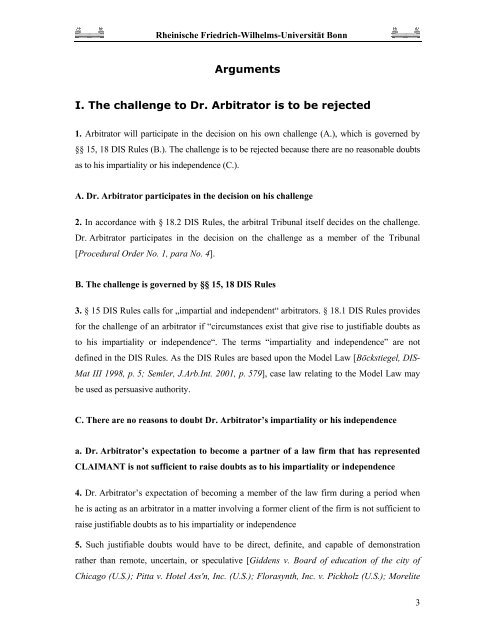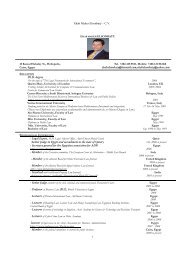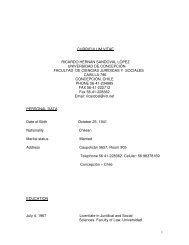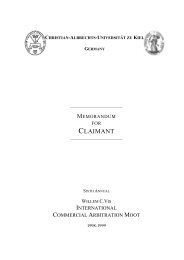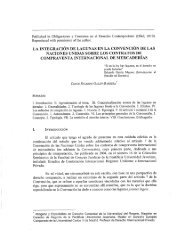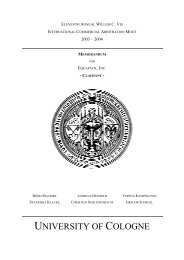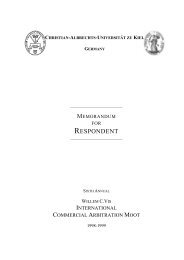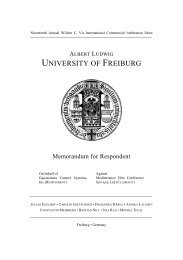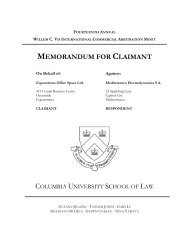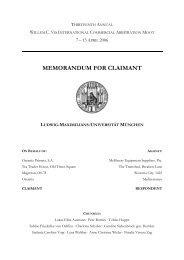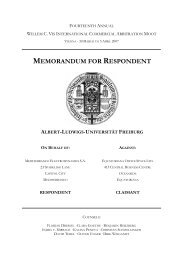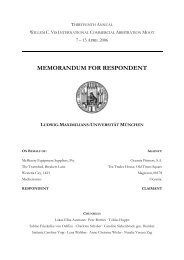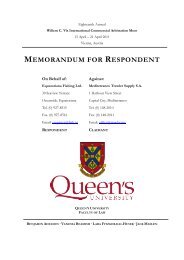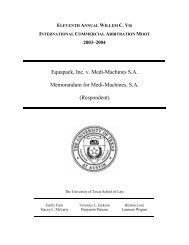MEMORANDUM FOR CLAIMANT
MEMORANDUM FOR CLAIMANT
MEMORANDUM FOR CLAIMANT
Create successful ePaper yourself
Turn your PDF publications into a flip-book with our unique Google optimized e-Paper software.
Rheinische Friedrich-Wilhelms-Universität Bonn<br />
Arguments<br />
I. The challenge to Dr. Arbitrator is to be rejected<br />
1. Arbitrator will participate in the decision on his own challenge (A.), which is governed by<br />
§§ 15, 18 DIS Rules (B.). The challenge is to be rejected because there are no reasonable doubts<br />
as to his impartiality or his independence (C.).<br />
A. Dr. Arbitrator participates in the decision on his challenge<br />
2. In accordance with § 18.2 DIS Rules, the arbitral Tribunal itself decides on the challenge.<br />
Dr. Arbitrator participates in the decision on the challenge as a member of the Tribunal<br />
[Procedural Order No. 1, para No. 4].<br />
B. The challenge is governed by §§ 15, 18 DIS Rules<br />
3. § 15 DIS Rules calls for „impartial and independent“ arbitrators. § 18.1 DIS Rules provides<br />
for the challenge of an arbitrator if “circumstances exist that give rise to justifiable doubts as<br />
to his impartiality or independence“. The terms “impartiality and independence” are not<br />
defined in the DIS Rules. As the DIS Rules are based upon the Model Law [Böckstiegel, DIS-<br />
Mat III 1998, p. 5; Semler, J.Arb.Int. 2001, p. 579], case law relating to the Model Law may<br />
be used as persuasive authority.<br />
C. There are no reasons to doubt Dr. Arbitrator’s impartiality or his independence<br />
a. Dr. Arbitrator’s expectation to become a partner of a law firm that has represented<br />
<strong>CLAIMANT</strong> is not sufficient to raise doubts as to his impartiality or independence<br />
4. Dr. Arbitrator’s expectation of becoming a member of the law firm during a period when<br />
he is acting as an arbitrator in a matter involving a former client of the firm is not sufficient to<br />
raise justifiable doubts as to his impartiality or independence<br />
5. Such justifiable doubts would have to be direct, definite, and capable of demonstration<br />
rather than remote, uncertain, or speculative [Giddens v. Board of education of the city of<br />
Chicago (U.S.); Pitta v. Hotel Ass'n, Inc. (U.S.); Florasynth, Inc. v. Pickholz (U.S.); Morelite<br />
3


